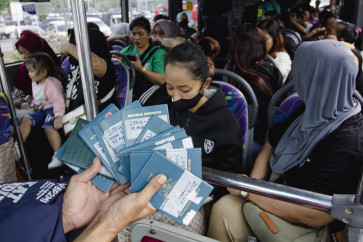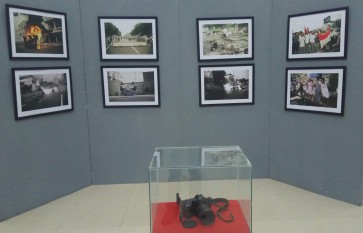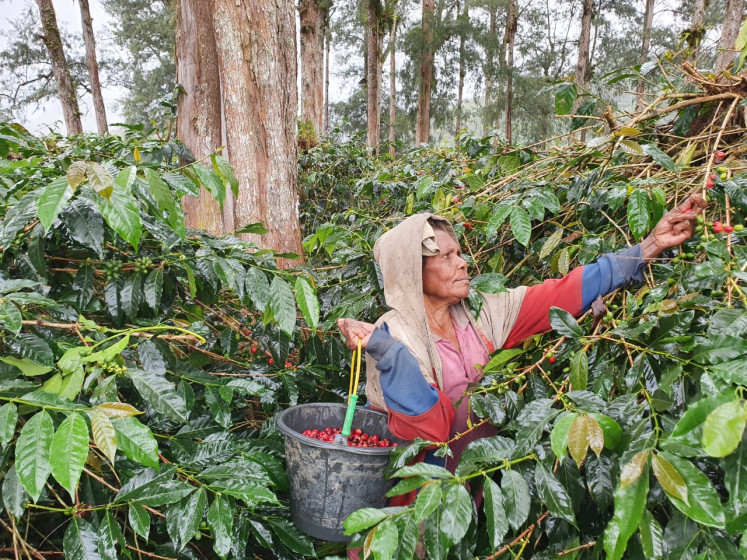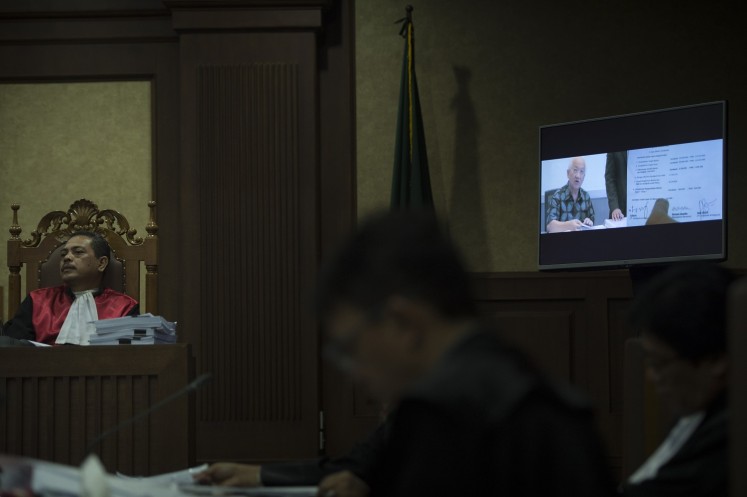Popular Reads
Top Results
Can't find what you're looking for?
View all search resultsPopular Reads
Top Results
Can't find what you're looking for?
View all search resultsWhat can Indonesia learn from PISA 2016?
According to the report, poor academic performance is not the result of one single risk factor, but rather of a combination and accumulation of various barriers and disadvantages that affect students throughout their lives. Socio-economic status as factor for student failure, which although does not directly link to achievement, could potentially develop into a risk of failure if its characteristics are experienced in combination. Pierre Bourdieu, a French sociologist, argues that the economic, cultural and social capital of the family could either promote or inhibit children’s learning in various ways. Further, he believes that society and social class is produced and reproduced by, among others, educational processes.
Change text size
Gift Premium Articles
to Anyone
 Children whose parents have higher educational qualifications and good salaries benefit from accessing a wider range of financial (computers, books, private tutoring), cultural (foreign languages, wider horizon, self-management), and social (role model and network) resources that make it easier for them to succeed academically. (Shutterstock/-)
Children whose parents have higher educational qualifications and good salaries benefit from accessing a wider range of financial (computers, books, private tutoring), cultural (foreign languages, wider horizon, self-management), and social (role model and network) resources that make it easier for them to succeed academically. (Shutterstock/-)
T
he Organization for Economic Cooperation and Development (OECD) has just released its 2016 PISA report entitled “Low-Performing Students: Why they fall behind and how to help them succeed”.
The Program for International Student Assessment (PISA) is a triennial assessment of reading, mathematics, and science carried out by the OECD to 15-year old students across 80 countries throughout the globe, including Indonesia.
By referring to the 2012 PISA results, which focused on what students know and can do, this year PISA reveals the reasons why students fail and proposes how to support them. In addition, the report found a strong correlation between socio-economic background and student achievement.
What does this mean? And more specifically, what does it mean for Indonesia? Generally, socio-economic background is the economic and sociological condition that characterizes any individual, usually measured by parents’ income, education and occupation. In a more critical perspective, it is referred to as social class.
On average across OECD countries, the likelihood of low performance in reading, mathematics, and science is higher for students who are socio-economically disadvantaged, attend schools in rural areas, had not attended pre-primary school (or had attended for a year or less), had repeated a grade and also for students enrolled in vocational programs or schools. This includes Indonesia.
According to the report, poor academic performance is not the result of one single risk factor, but rather of a combination and accumulation of various barriers and disadvantages that affect students throughout their lives. Socio-economic status as factor for student failure, which although does not directly link to achievement, could potentially develop into a risk of failure if its characteristics are experienced in combination.
Pierre Bourdieu, a French sociologist, argues that the economic, cultural and social capital of the family could either promote or inhibit children’s learning in various ways. Further, he believes that society and social class is produced and reproduced by, among others, educational processes.
Is he right? Unfortunately, yes.
Children whose parents have higher educational qualifications and good salaries benefit from accessing a wider range of financial (computers, books, private tutoring), cultural (foreign languages, wider horizon, self-management), and social (role model and network) resources that make it easier for them to succeed academically.
In contrast, children coming from a low socio-economic background suffer from financial hardship and family instability.
Of course, the educational reality is not this simple. There are, by all means, exceptional cases. Children from well-off families might flunk out of schools due to poor parental attention, drugs or other forms of juvenile delinquency. Factors such as childbearing, emotional health, and students’ behavior and attitudes also influence student performance.
Nevertheless, in Indonesia’s context, this year’s PISA findings reverberate with the World Bank’s report on social inequality. According to the World Bank, the Gini coefficient, which is used to measure income inequality, increased from 0.32 in 2002 to 0.41 in 2013. Although such a measurement and statistical data do not adequately capture the multifaceted inequality and wealth concentration at the top, at least it suggests that inequality has exacerbated at an accelerating pace this last decade in Indonesia.
Widening social inequality means inequality of opportunity in all fields, which potentially leads to rising unemployment, crime rates and intergenerational poverty. These two reports imply that socio-economic background matters when responding to educational problems.
The government has been working hard to address this issue, among others by providing scholarships and free tuition to disadvantaged students, such as Bantuan Siswa Miskin (Aid for Poor Students) and Bidik Misi (Targeted Mission). They are forms of targeted support for the disadvantaged. While this could be an answer to pave the way for the poor to access education, many researches reveal that the dropout rate is still high.
This vicious circle of poverty should be eliminated to respond to the crux of complex educational problems. A country does not have to be wealthy to provide high quality education. Brazil, Mexico and Peru have tailored policies to overcome unequal access to education.
A more comprehensive and integrated approach to educational inequality is badly needed; otherwise 20 million Indonesian children will be deprived from their right to education. All kids deserve to get good education. This is the faith that we uphold in the 1945 Constitution, that “every citizen has the right to an education.”
***
The writer is a lecturer at the English department of Semarang State University. She is pursuing her PhD at the University of Auckland with the support of the New Zealand ASEAN Scholars Award.
---------------
We are looking for information, opinions, and in-depth analysis from experts or scholars in a variety of fields. We choose articles based on facts or opinions about general news, as well as quality analysis and commentary about Indonesia or international events. Send your piece to community@jakpost.com.









